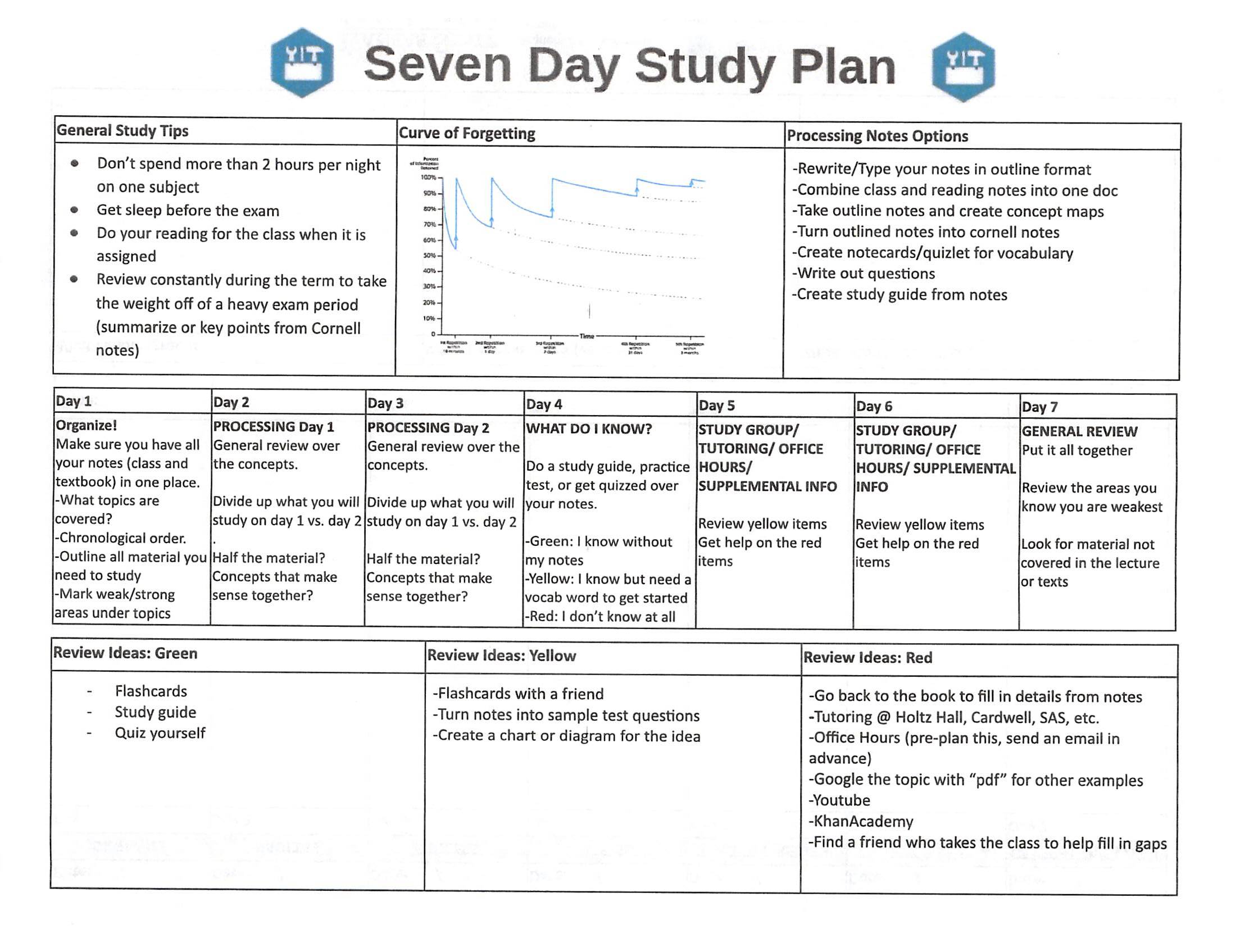Studying and S.T.E.M.
“Never regard study as a duty, but as an enviable opportunity to learn to know the liberating influence of beauty in the realm of the spirit for your own personal joy, and to the profit of the community to which your later works belong."
- Albert Einstein
Studying is what keeps the cogs turning in the ever-churning machine of university student life. Outside of class you'll be spending a large chunk of each day cracking open the books if you hope to be successful, and not simply by receiving a good mark. You're here to learn. However, studying is a skill, and much like any skill, you can hone it.
Tips and tricks
Here's some quick pieces to get you started.
- Create an environment for study, keep it for study only, and fill it with everything it will need. Control the noise level and visual stimuli as you see fit. Avoid lounging or relaxing while you work. Foster an atmosphere of concentration.
- It’s best to study during the day or early evening as you will cement information in memory better. Try to limit studying when you feel fatigue or a lack of attention creeping up.
- You won't lose friends or a good time simply by studying. A lot of people tend to be afraid of missing out on life, but your best years are yet ahead. You're here first and foremost to study, but just because you study hard one day doesn't mean you can't do something purely enjoyable, a hobby perhaps, the next day, or even the same day.
- Reward yourself for consistent studying and reaching the goals you set for yourself in the process. This is a very straightforward system to keep yourself going. It could be with sweet treats, a few clips on YouTube, a quick scrimmage — it’s up to you. Remember, however, that too much reward can be detrimental.
- Out of mind, onto paper! Don't keep everything in your head. Ideas can disappear more quickly than you think. If something pops into your head while studying, it's best to write it down. It can usually even help it make more sense if you're initially confused.
- Mix it up to keep things interesting. Setting aside a large chunk of time to study through several different course contents can help cull the at-times humdrum nature of strictly a one-subject focus for the evening.
Thorough reading
Dartmouth College developed an SQ3R method for thorough reading of any form of text, adapted from F.P. Robinson. Effective Study. New York: Harper and Bros. 1948. Chapter II. We find this to be incredibly effective in absorbing highly technical information.
- Step 1: Survey
- Skim through the book and read topical/sub-topical headings and sentences. Read summaries at the end of chapters and books. Try to anticipate what the author is going to say. Write these notes on paper, then look it over to get an overall idea.
- Step 2: Questions
- Turn paragraph headings into questions (e.g. “Basic Concepts of Reading” to “What are the Basic Concepts of Reading?”). Write these questions out.
- Step 3: Read
- Read with alertness to answer the questions you came up with. Write notes, in your own words, under each question.
- Step 4: Recall
- Without looking at your books or notes, mentally visualize, in your own words, the high points of the material immediately upon completing the reading. More time should be spent on recall than reading
- Step 5: Review
- Look at your questions, answers, notes and book to see how well you did recall. Finish up with a mental picture of the WHOLE.
Note-taking
Cornell University has created a system of note-taking that has revolutionized many people's method of recording. See it below.

1. Record:During the lecture, use the note-taking column to record the
lecture using telegraphic sentences.
2. Questions:As soon after class as possible, formulate questions based on
the notes in the right-hand column. Writing questions helps to clarify
meanings, reveal relationships, establish continuity and strengthen
memory. Also, the writing of questions sets up a perfect stage for exam-studying
later.
3. Recite:Cover the note-taking column with a sheet of paper. Then, looking
at the questions or cue-words in the question-and-cue column only, say
aloud, in your own words, the answers to the questions, facts or ideas
indicated by the cue words.
4. Reflect:Reflect on the material by asking yourself questions, for example,
“What’s the significance of these facts? What principle are they based on?
How can I apply them? How do they fit in with what I already know?
What’s beyond them?”
5. Review:Spend at least 10 minutes every week reviewing all your previous
notes. If you do, you’ll retain a great deal for current use as well as for the
exam.
This has been adapted from How to Study in College 7/e by Walter Pauk, 2001 Houghton Mifflin Company.
Seven-day study plan
Taken from our university's very own Academic Achievement Center, the Seven-Day Study Plan is a quick tool for blocking out a seven-day week for studying a single or several subjects. It breaks down specifically what you should do day-by-day. This was constructed based on research into the most effective methods of learning and retention. After all, what better way to study science, than with science?
